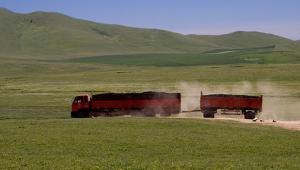Web_Mongolia_iStock_000010958063_Large.jpg

Coal truck in Mongolia
The central-Asian country is large, landlocked and sparsely populated. It is poor and its development has been very slow, especially after a decade of devastatingly severe storms in winter.
But following the discovery of vast reserves of high-grade coal, as well as copper and gold, Mongolia has begun rapid social and economic development. The discovery of these extractives is expected to triple the country’s economy by 2020 and push millions of its people up into the global middle class, the OED said.
However, corruption is a significant problem. The OECD notes in its report, Anti-Corruption Reforms in Mongolia, that exploration of the country’s mineral resources only “exacerbated governance and corruption challenges” for the “fledgling democracy”.
“Mongolia has started a number of important reforms...but they are far from producing sustainable results,” it said.
The OECD report commends the Independent Authority Against Corruption of Mongolia (IAAC) for its active work on prevention, public awareness and investigations. But it said action should have been taken to increase the capacity of the institution and enable it to fully deliver on this very broad mandate.
It calls on Mongolia to reject the introduction of any amnesty laws that would grant protection from prosecution for corruption or lead to termination of cases currently being investigated by the IAAC.
Other recommendations include adopting the new anti-corruption strategy without delay, bringing national legislation in line with international standards and reforming the civil service, political party financing and the judiciary.
However, the report also notes Mongolia’s achievements including: the development of public administration procedures; a well-functioning national audit office; and the adoption of the Glass Accounts Law, which saw the formation of a transparent system of reporting on the financial transactions of public organisations.












